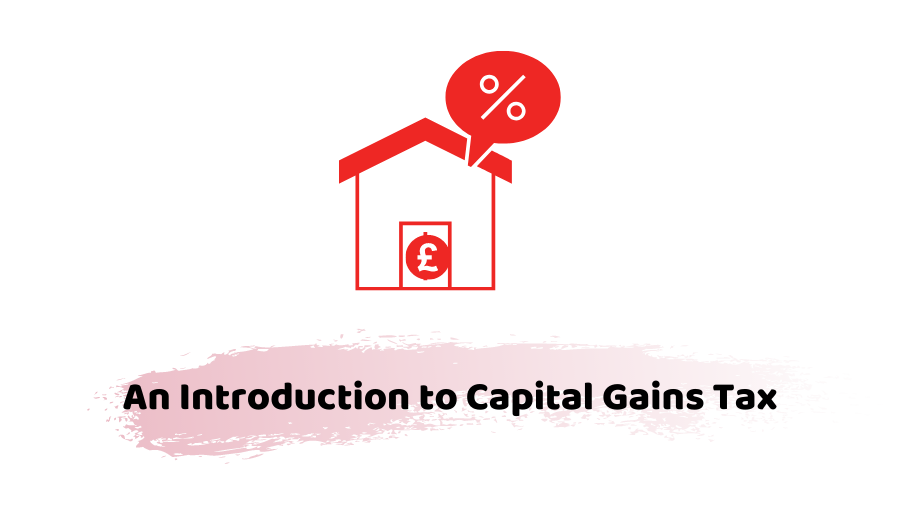Capital Gains Tax (CGT) applies when chargeable assets are disposed of and applies to individuals and trustees but not to limited companies. However, Limited Companies do pay Corporation Tax on the gains that they make.
Chargeable assets include all forms of a property unless it is specifically exempt. The main assets it tends to apply to our land and buildings, shares, and business assets, including goodwill. CGT can be very complicated, and the rules are far more detailed than can be explained in this brief summary.
How a Capital Gain occurs
A capital gain occurs when the value of an asset at the date it is disposed of is higher than when it was acquired. An asset is discarded either by sale or by gift. If you give away an asset away in an uncommercial transaction, the market value will replace any actual consideration paid.
For assets acquired before March 31, 1982, the cost usually is taken to be the value on that day, although the actual price can be used in some circumstances.
The following also reduce the amount of the chargeable gain.
- Incidental costs of acquisition;
- Expenditure to enhance the value of the asset;
- Incidental charges of disposal; and
- Tax reliefs and allowances (see below).
Tax Rate
CGT is paid at a rate of 28 percent, where the cumulative taxable wages and profits are above the basic rate band of income tax. The price is 18 percent below that mark. The figure is 28 percent for trustees and family relatives of the deceased.
Tax Exemption
- Rollover/holdover relief on the transfer of business assets -allowing you to delay the CGT on a business asset gain if it fits the removal of a new business asset for a period starting one year before disposal and finishing three years after placement.
- Company incorporation relief is available in exchange for equity when you move your business to a limited partnership.
- Holdover gift exemption – sure gifts of business properties or gifts made into trust mean the tax will not be payable until it is disposed of by the individual or trustee who receives the award.
- Entrepreneurs’ relief until April 5, 2008. It allows the disposal of a material part or whole company to reduce the GST limit to 10%. There is a lifetime limit that is £10million as of April 6, 2011.
Loss of Money
Any capital loss incurred during an irreversible transaction in the same tax year are offset against any capital gain. Such shall be implemented before the annual withdrawal. Unused capital losses are carried forward against the future, typically not returnable capital gain. To claim a capital loss, it must be declared to HMRC within five years and ten months of the end of the tax year in which it happened.
Entrepreneurs’ Relief
The new entrepreneurs’ relief can apply when you sell part or all of your business or shares in your own company after April 5, 2008. Entrepreneurs’ relief allows the capital gain to be taxed at an effective CGT rate of just 10% (instead of 18% or 28%).
There are some other tight restrictions to entrepreneur relief. It applies to gains made after April 6, 2008. From April 6, 2011, the relief applies to the first £10million of qualifying lifetime gains. Gains in excess of this limit or which do not qualify for other reasons will be taxed at 18% or 28%.
Annual Wavier
Exemptions to a CGT
What are the main CGT exemptions
- Usually, the sale of your sole or primary residence is excluded, but under some cases it
- can become partly chargeable, such as if it is rented out or used for business purposes;
- Property transfers between husband and wife or civil partners. Such transfers are treated as being made at no gain/no loss;
- Most chattels whose value decreases over time (called wasting assets);
- Non-wasting and business chattels where the disposal proceeds do not exceed £6000;
- Private motor cars;
- Gifts to charity and individual amateur sports clubs;
- SAYE contracts, savings certificates, and premium bonds;
- Betting winnings and prizes including the lottery;
- Compensation for damages for personal or professional injury;
- Some compensation payouts for mis-sold pensions;
- Life assurance policies in the hands of the original owner or beneficiaries;
- Company reorganizations and takeovers where there is a share for share exchange.
Tax Schemes Available
There are certain types of investment that have been designed with preferential tax treatments for Capital Gains Tax and Income Tax, mainly to encourage investment in new companies and also to encourage employees to own shares in the companies they work for.
Schemes include the Enterprise Investments Scheme (EIS), which gives income tax and capital gains tax relief on investments made in companies with assets worth less than £15million. A similar scheme, Seed Enterprise Investments Scheme (SEIS), with the same ease for smaller companies. The Enterprise Management Incentive Scheme is a share option scheme that can be used to provide tax-efficient targeted incentives to key employees or employee groups.
See our helpsheets that deal with EIS, SEIS, and EMI in more detail.
Payment of CGT
CGT is paid through the self-assessment system, and gains and losses must be declared on your self-assessment return. The benefits after all reliefs and exemptions are added to your taxable income and then taxed at your top marginal rate. The tax is payable by January 31 following the tax year in which the gain arose.
How We Can Help You
Capital Gains Tax is a specialist area, and you should contact us for advice in minimizing CGT liabilities.





















































